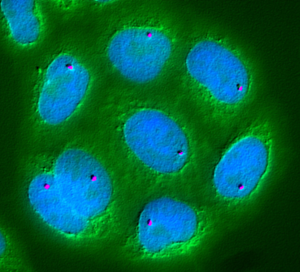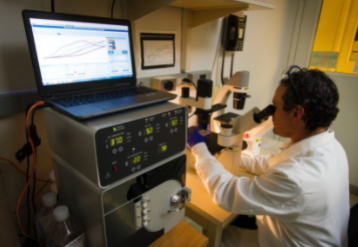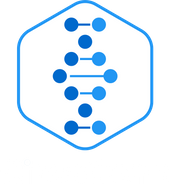We’ve all heard the saying, “It’s all in the genes,” and the truth is, it really is all in the genes. Your genes can essentially tell you your past, the future, and much more.
In its simplest terms, our genes are the basic and functional segment of our DNA that carry essential instructions for the cell’s production. They are found in the nucleus of each cell and are basically keeping you alive by building your body the way it is and doing all the crucial work like digesting food, carrying oxygen, and even helping you breathe.


We all have somewhere between 20,000 to 25,000 genes, and they are divided into groups that make up the chromosomes in our body—most of us have 23 pairs of these.
Now we’ve all heard about chromosomes and how we get those from our parents; each pair has one from the mother and the other from the father. So basically, you get ALL your genes from your parents.
So, no wonder they’re able to explain it all
Your traits may make you unique, but, in reality, it all just goes down to your genes. Each person is distinctly different, even those who may look identical—like twins! What makes them different is their genetics.
So, while it’s true that identical twins do share a DNA code because they are formed from the exact same egg and sperm, they aren’t genetically identical anymore by the time they are born.

Genetics is the scientific study of your genes. It’s basically a branch of biology that studies the DNA makeup of organisms and how the DNA becomes your genes and how these genes are then passed on.
Your genetics can help explain your unique traits, where they come from, and how they would affect your life. They also help explain why you resemble your parents or why your siblings and you are not identical.
But most importantly, genes can help to identify and understand the diseases that run in the family. This can make a massive difference in the diagnosis and treatment of a disease.
Through genes, you can share a lot with your ancestors, including diseases. This is because many diseases are often caused by a genetic mutation. This basically refers to instructions being changed in a gene. But every change doesn’t necessarily result in a disease—sometimes mutations can be pretty helpful as well.
But some of the most common diseases like diabetes, for instance, are caused by these mutations, which explains why they run through generations after generations in families. And for some diseases, mutations alone aren’t responsible but combined with lifestyle changes and environmental factors; they can result in diseases.
Moreover, some diseases caused by genetic mutation are very rare. They sometimes develop when a mutated gene is already present at the time of birth. Rare diseases are often explained by genetics, and therefore if a disease, rare or common, runs in the family, it should be kept in mind and shared with your primary physician.
Since your genetics can tell you your family’s health history, they make it possible for you to be extra cautious of the diseases prevalent in your family. Of course, the solution isn’t to change or alter your genes, but you do have the option to make better life choices.
For instance, if a grandparent, parent, aunts, or uncles have been diagnosed with Type 2 diabetes, there is a considerable risk that you might get it too at some point in life. But cutting down on sugar and refined carbs can slow down your journey to that diagnosis since Type 2 diabetes is primarily caused by genetics and lifestyle choices.
Once the risks posed by your genes have been identified, you can take active preemptive measures to ensure that the risks are reduced significantly through environmental and lifestyle changes.
It can also help your doctor make a quicker and more accurate diagnosis. In fact, you can preemptively get screened for a disease that runs in your family, and in case anything’s found, you can get treated before the symptoms even show. This could make the difference between life and death if a disease like cancer is detected since some cancers run in families.

The bottom line is that some people may tell you they know you inside out, but in reality, the only person who really does know you inside out is the one who’s done your DNA genetic testing and analysis.
If you’d like to learn more and genetic and genomic testing or would like to sign up for our hyper-personalized genetic analysis or genetic counselling services, get in touch.

COPYRIGHT © CIRCAGENE LTD ™ ALL RIGHTS RESERVED